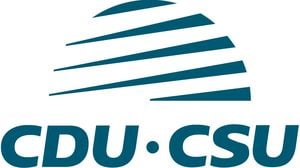South Korea is grappling with significant economic challenges as citizens face steep rises in the prices of essentials like food and fuel. The government has recognized these pressing concerns, prompting intervention measures aimed at alleviating the financial burden on its populace.
According to Kim Dong-ryeol, the South Korean Finance Minister, "Economic circumstances are leading to increased hardship for our citizens." This statement reflects the growing anxiety among citizens who are witnessing their purchasing power decline due to hikes in the cost of living. Families are particularly feeling the pinch from rising prices at grocery stores and gas stations, leading to widespread concern about the ability to make ends meet.
The economic turmoil can be attributed to several factors including global inflation, disruptions to supply chains, and increasing production costs within South Korea. Prices for staple goods have surged, with reports indicating rises of up to 15% for basic food items compared to last year, causing public outcry and raising questions about government effectiveness.
Facing criticism from the public and economists alike for its handling of the economic situation, the government has announced various measures to mitigate the impact on citizens. Among these are subsidies introduced for public transportation and energy costs aimed at helping families manage their expenses. Many hope these steps will stabilize the economy and provide much-needed financial relief.
Economic analyst Lee Jae-moon stated, "Immediate actions must be taken to stabilize the economy and protect consumers." This sentiment echoes the experience of South Korean citizens, who have grown increasingly impatient with the rising costs as their household budgets are stretched thinner by inflation.
While some of these government measures have been well-received, doubts linger about their long-term efficacy. Critics argue these actions appear reactive rather than proactive, questioning whether the government truly understands the underlying issues stoking inflation. Public trust has been shaken, with many people calling for more comprehensive reforms to tackle these economic challenges.
With the South Korean economy facing potential stagnation amid these rising costs, the government's future actions could be pivotal. Experts are watching closely to see whether the current measures will have any substantial impact on economic stabilization or whether more drastic steps are required to support struggling citizens.
Citizens express frustration, concerned over what the immediate future holds as they navigate this period of uncertainty. The rising cost of living is not merely a statistical blip for many South Koreans; it is affecting their daily lives and spending habits, pushing some families to make substantially different purchasing choices. To many, the struggle is real as the economic burdens continue to weigh heavily.
Looking forward, the South Korean government will need to balance economic growth with cost control if it wishes to restore confidence among its citizens. The intertwined threads of inflation, government response, and consumer protection represent challenges not just for today but for the economic health of South Korea’s future. It’s clear the road to recovery will require careful navigation and attentive governance to address the multifaceted pressures attaching themselves to South Korea's economy.



